Why smokers cannot see smoking for what it is. There are three main reasons smokers cannot see what smoking is. Read more
Smoke Free Life Step Program Step 6
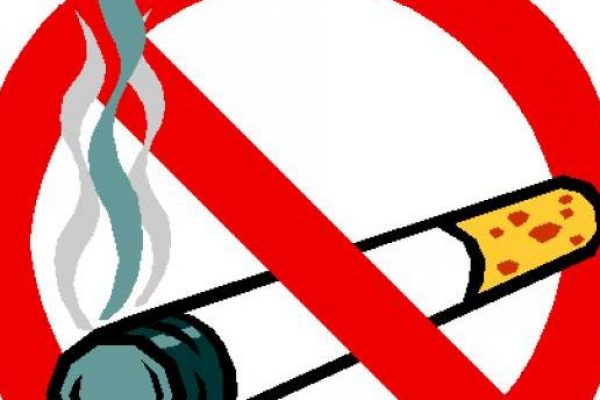


When you picture people at bars, you see men and women casually smoking AND drinking, right? As the daughter of an alcoholic and a heavy smoker, my heart goes out to the children and spouses of those who indulge in both. Because let’s be realistic, the likelihood that anyone who smokes also drinks is strong. I did not see the correlation as a child or teenager, I just thought of them as separate bad habits. Read more

It was a hot and steamy evening with no cool breeze whispering its vanity. The echoes of the waves from the beach rhythmically splash as the world sleeps. But somewhere in Havana, some innately natural and distinctly human ritual is happening. Two souls, connected as one, embark on a pristine exploration of their own humanity. Finally, the winds whisper again, and the leaves of a small palm tree swooshes about, tingling and mingling as if they were rolling in laughter. Read more
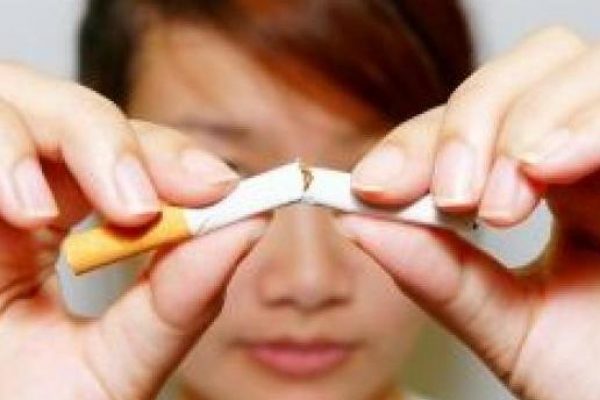
There are many people out there who are addicted to smoking, and you could be one of them. If you know you have to quit for health reasons, you might want to explore autosuggestion as a technique for quitting smoking.
The first stage to quitting smoking is to analyze why you smoke in the first place. Do you smoke because you think it makes you look cool and sophisticated? Do you smoke because everyone else you know also smokes? Why do you continue to smoke even though you know it is bad for you? Do you really want to quit?
Now that you know why you smoke, you need to figure out why you want to quit. Have you been coming down with respiratory ailments frequently? Does the slightest physical exertion leave you out of breath easily? Maybe you want to quit because you don’t want your kids copying you. Or maybe you want to stop spending money on fags that you can use for other more necessary things. People have different reasons for wanting to stop smoking.
Now the autosuggestion part comes to fore. You should look at your reasons for wanting to quit and repeat them to yourself every day. You should set aside an hour daily just to read your reasons for quitting smoking. Keep doing this until you have memorized these autosuggestions. Repeat them to yourself throughout the day, and especially when you feel the urge to return to smoking.
Yes, quitting smoking can be a long road to travel by you. So get your friends and family in on it by telling them to stop you when you feel the urge to light a smoke. Your relatives and friends can also text you your autosuggestions throughout the day – this should help bolster your resolve to quit smoking altogether for good.
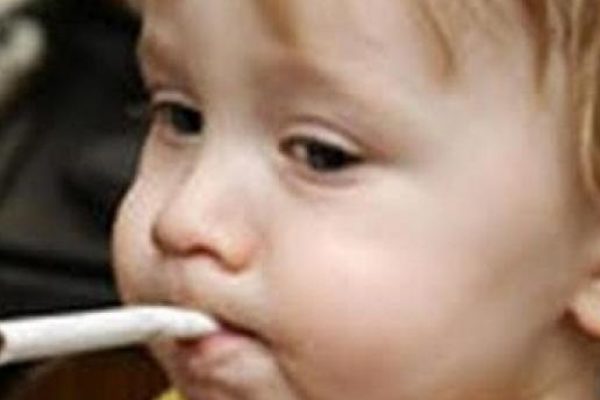
There's no denying it, smoking parents lead to smoking babies. Of course, secondhand smoke is directy harmful, but have you considered the longer-term impacts of smoking in front of your little ones?
Research shows that attitudes and behaviors towards smoking are learned early on. While still in the adolescent stage, children look upon their smoking parents favorably. Be it while chatting with friends, after a big meal, or sprawled out on the living room couch–smoking looks great! It's not until later that kids then realize, the more the merrier.
Understanding the reasons and setting a good example can eliminate peer pressure as an influencing factor.
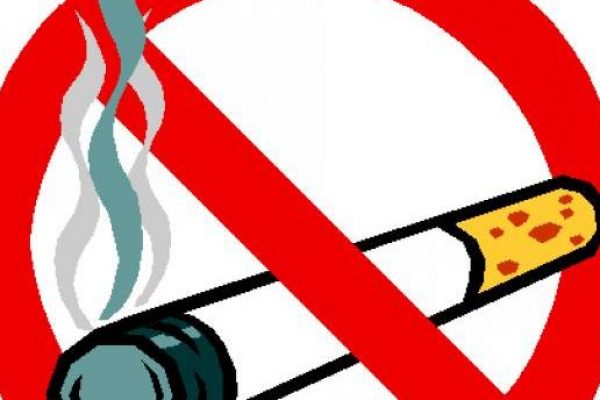
In this step we will identify why we carry on smoking. All of you have started smoking for one reason or another. One reason people start smoking is because of social pressures or social occasions. Now you're hooked why do you continue to smoke? That is the problem no smoker knows why they smoke. If a smoker knew the true reasons they smoked they would stop smoking. The true answer why you smoke is the same for all smokers but the variety of replies is infinite.
Smokers realize in their hearts they are mugs. Each smoker realizes they never had to smoke the first time but now they're hooked. Think back to your first cigarette and how horrible it tasted. You had to work hard to learn how to smoke and become hooked. Smokers come to realize that nonsmokers are not missing anything and feel they are laughing at them.
Smokers are intelligent, rational human beings. Each smoker understands the health risks and the money they spend in their lifetime smoking. Understanding these issue smoker find it necessary to have a rational explanation to justify their habit. The real reason you continue to smoke is nicotine addiction and brainwashing.
Nicotine Addiction
Nicotine, a colorless, oily compound, is the drug found in tobacco. Nicotine is why smokers cannot stop smoking and they're addicted to smoking. Nicotine is the fastest addictive drug knows to civilization. It only takes one cigarette to become hooked. Every puff on a cigarette delivers a dose of nicotine to the brain from your lungs. The dose of nicotine your brain receives acts more rapidly than the dose of heroin the addict injects into his veins. Consider there are twenty puffs on each cigarette. You are injecting twenty doses of the drug into your brain for each cigarette you smoke.
Did you realize that nicotine is a quick-acting drug? When smoked the levels in your bloodstream fall quickly. After smoking within thirty minutes the nicotine levels fall quickly to half and within an hour to a quarter. This explains why you smoke an average of twenty cigarettes each day. After you put out your cigarette the nicotine levels rapidly start to leave your body and you begin suffering withdrawal pangs.
Smokers have a common illusion about withdrawal pangs. Smokers believe that withdrawal pangs cause terrible trauma that they must suffer when forced to stop smoking. This is another brainwashing technique by the cigarette companies to keep you smoking. The feeling is not withdrawal pangs but is mental. The smoker only feels deprived of his pleasure or prop.
Withdrawal pangs from nicotine are subtle and most smokers who stop smoking never realize they are drug addicts. When the term "nicotine addicts" is used most smokers think they just "got into the habit". If you talk with smoker they have a horror of drugs and being an addict. But that is what the smoker is a drug addict. Nicotine addiction is an easy drug habit to kick once you accept you're addicted. There is no physical pain in the withdrawal from nicotine. The true feeling a smoker feels when stopping to smoke is an empty restless feeling and smokers think it is something to do with their hands. If the feelings prolonged, the smoker becomes nervous, insecure, agitated, lacking in confidence and irritable. This feeling is like hunger to a smoker for the poison of nicotine in his body.
In the beginning when you started to smoke the withdrawal pangs were slight and you did not even know they existed. After you start to smoke regularly and think it is because you enjoy smoking or you have gotten into the habit. The truth is after the first cigarette you're hooked and did not realize it. You have smoked one cigarette and now the nicotine monster is inside your stomach and now and then needs to be fed. The reason you continue to smoke is to feed the nicotine monster inside you.
Smoking is a serious countdown and each smoker knows they're trapped by something evil. Once trapped the only pleasure you receive from a cigarette is trying to return to a state of peace, tranquility and confidence you had before you started to smoke. Your body was complete before you started the nicotine chain. Once you have forced nicotine into your body and put out the cigarette the nicotine starts to leave and you suffer from withdrawal pangs. The withdrawal pangs are not physical pains but an empty feeling. You are not aware they exist but the nicotine in your body is a dripping tap.
Your rational mind does not understand this problem all you know is you want a cigarette. Once you light the cigarette and smoke it the craving is gone and you feel content and confident again. The feeling you are feeling is the state of confidence before you ever started smoking. The satisfaction you feel is only temporary because you have to relieve the craving by putting more nicotine into your body. Once you put out the cigarette the craving starts again leading you into an endless chain. You're stuck in the endless chain of life until you break it.
In this step we explore the reasons you started smoking the first time and what keeps us smoking now. Understanding the nicotine monster inside us is important. Once you understand how nicotine works on your body and accept the fact you are a drug addict then you can stop smoking. Nicotine withdrawal is one drug that is easy to break when you understand how it works on your body. Many try to keep you smoking using brainwashing techniques saying how bad the withdrawal pangs can be. When in fact the withdrawal pangs are no more than an empty feeling you have similar to hunger pains. In step 6 we will continue to explore the nicotine addiction and how to identify the problem. We will talk about how it all started and how we can break the cycle of smoking.

In continuation of three tips that helped me remain smoke free and might work for any of you trying to kick the habit but struggling to figure out a way to do it once and for all, I give you tip number two, replace your smoking habit with a healthy habit.
This was one of the best things I did to remain smoke free. By replacing my smoking with a healthy habit I was able to reverse the damage to my body sooner and get into the best shape of my life. I took up hiking and jogging to substitute my smoking. I since have hiked all over the country and have also run in many local 5k and 10k races, and even half marathons!
Now of course your healthy habit doesn’t have to be running or hiking distances, it can be anything you feel like. Instead of lighting up that first cig when you wake up go for a short walk in the morning or hit the gym. You could join a club sport like basketball or play softball on the weekends. The options are countless and can easily be made to fit your lifestyle and your interests. But by choosing some kind of healthy habit to replace your old smoking habit it can provide a great distraction from trying to quit smoking and also give you some motivation.
This tip can be difficult to follow but if you set goals for yourself you will remain smoke free. When I quit, I set a goal of running a 7 mile race in my hometown in under one hour. I was able to accomplish this by setting aside an hour three to five days a week after work to go for a jog. Three months later the thought of smoking never really crossed my mind as I was purely focused on achieving my goal, and in the process I lost 25 pounds and felt a lot healthier overall.
This tip of picking up a healthy habit worked out great for me and it could likely help many of you out there who are pondering quitting. It keeps your mind focused away from smoking and allows you to get healthier faster as well. So if you are still thinking about quitting smoking and you want to use that gym membership you got on New Year’s for this year’s resolution, I say go for it and don’t look back.

"If you're doing nothing wrong, you have nothing to fear or be ashamed of."
That is a principle I've always kept close to my heart. In the last few days, there are a lot of things that have happened that just made me feel constricted and stressed out. Therefore, I was not able to control my smoking. In fact, it has gotten worst. I am back to smoking 1 pack a day and I'm not making this an excuse. I'm writing this because, I feel weak at having broken my goal.
It all started when a man tresspassed in our fenced and gated land. I have had to confront him. He was carrying a jungle bolo (a small sword), he walked about like it was his property, took a look left and right, thereaways and sideaways then that's the time he went to me to ask for some bamboo.
I was seething with anger even though I know this man, because he was not really a friend, just a neighbor. A neighbor who walked inside our fenced and gated property, without declaring his intentions first and who was carrying a bolo.
When I was face to face with him, I first took a look at the bolo, sheethed at his side. I glanced at his hands whether its movements or intentions were directed at reaching out for it. I stared at him for a whole 5 minutes, mustering up all my strength to control my anger and you know what I did?
Nothing. I said nothing and did nothing. I just stared at him so he knows that I'm angry at what he had just done.
If this was in another place, maybe in the cities, I would have acted differently. But this was a unique place. I am surrounded by a clan with a history of violence.
I have daughters of my own.
To top it all off, he seemed unaware of his transgression. He feels that he has done nothing wrong and it was his right to just barge in, walk about and count the things that he would like to get.
He said to me,
"Danny are you angry?"
I stared at him.
"Danny, why are you angry? I've done nothing wrong."
I let out a deep breath.
2 minutes passed and I was still staring at him.
He was a big man, about 40 to 50 years old, taller than me and I've heard stories about him. They said that he was the "Barako" or bull of this small town back during the times when here was still wild. That if his brothers were still alive, he would have been the "King" of this place way back when.
Finally he said,
"Danny, I am weak and old."
Something in my adrenaline infused mind, clicked. Just like that, my anger meter suddenly went down to about 10%.
I let out a deep breath and sighed.
With a harried and annoyed tone I gave way, "Ok, ok, what do you need?"
The story ended with me hauling 8 bamboo poles to this man's house and me buying him 4 cans of corned beef. I am still angry and indignant, but I believe that I have done the right thing.
Other people would just have brought a gun to the equation. Simple solution, though it has its own demerits.
Make him feel that what he did was wrong and at the same time, send a message to the overall community that I don't mean harm.
I'm just demanding a little respect.
Since then, there has been another instant of tresspassing. This was last week.
I know that we need to have the fence fixed. They've created holes in it.
So, what do I do after an adrenaline infused situation?
I smoked more since then.
What else could I have done to calm myself?
Image credit: Flickr cod_gabriel

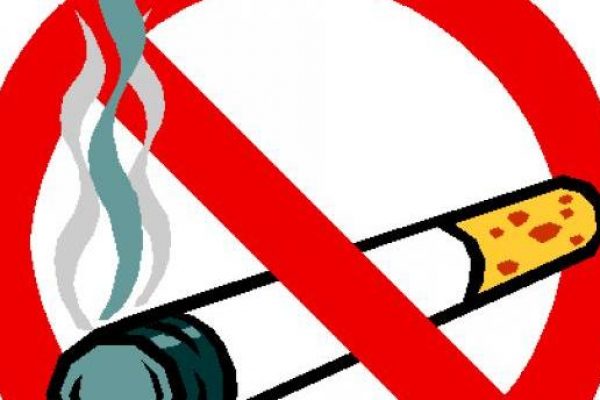
In this step we start to explore the brainwashing, why you are smoking, and changing the habit. You have decided to quit smoking and have come to the realization that smoking is just a habit. If someone asked you why do you smoke you might tell them that it relaxes you and gives you confidence. This is not true society has brainwashed us into thinking that smoking is a habit. People will tell you habits are hard to break so you go on smoking believing what they say. Are habits hard to break? No this is a lie that habits are hard to break. The simple facts each day we break bad habits in our lives.
We find it hard to break the habit of smoking even though it tastes awful, will kill us, and cost us a fortune. Consider why you keep this filthy and disgusting habit knowing you want to break it anyway. You can break this habit all you have to do is stop doing it. The truth is that smoking is not a habit but a nicotine addiction. That is why it is difficult to give up smoking. Smokers do not consider they are drug addicts or understand drug addiction. Society brainwashing has convinced smokers they receive genuine pleasures from smoking. If you try to give up smoking the brainwashing says to you this is a genuine sacrifice and you do not need to stop.
To give up smoking you have to understand the beautiful truth that smoking is a nicotine addiction. You need to understand the true reasons you smoke and then you can stop smoking just like that. Within a few weeks the mystery of smoking has left your life and the only mystery now is why you found it necessary to smoke the first time. You start to realize that smoking is not a habit but the cigarette companies brainwashed you to smoke. It is time to look closely at the world around you and what influences you to continue smoking. To give up smoking each day you have to reprogram your subconscious mind to see cigarette smoking for what it is. The cigarette is not a habit but a drug addiction, it is a filthy habit, costs money, and in the end will kill you.
In this step it is time to realize that smoking is the sinister trap and cigarette companies have brainwashed you. What makes anyone smoke the first time? Anyone who smokes warns you that smoking is filthy, disgusting, costs a fortune and you should never start smoking. We hear this advice and cannot believe they are not enjoying smoking. One pathetic issue of smoking is how hard you worked to smoke. Cigarettes are the only trap which has no lures it is the advertising that brainwashing you. The only reason you smoke a second cigarette is not the marvelous taste but how awful it taste. If the first cigarette tasted marvelous we would not go back and try it again. Then we could understand why half the adult population was paying to poison themselves. The awful taste of the first cigarette tells our mind we will never become hooked. Our minds play a trick on us saying they taste so bad we can stop at any time.
Cigarettes are the only drug in nature that prevents you from stopping. When young boys start smoking they have an image of being tough. When you smoked your first cigarette you did not feel tough. Instead you felt dizzy, sick and afraid to inhale. All you wanted to do was get away from the other boys and throw the filthy cigarette away. Cigarette companies have portrayed the image of men being tough when they smoke. Women are portrayed as being sophisticated. When boys learn to be tough and women learned to be sophisticated they wish they had never smoked the first cigarette. Women never look sophisticated when they smoke this are figments of our imaginations created by cigarette advertisements.
After becoming hooked we spend the rest of our lives trying to explain to our self why we smoke. We tell our children their friends that smoke will try to get you to smoke with them. We spend the rest of our lives trying to escape the trap we are in. When inside this trap the only time we try to stop is when we have stress in our lives. We have to stop only for health, money shortage or societies making us feel like a leper. As soon as we stop our lives fill with more stress thinking about the withdrawal pangs of nicotine. Once a smoker the only object to help stress is your cigarette and now you must do without.
Once you start smoking your life enters a giant maze. Once inside the maze your mind becomes misted and clouded. You spend the rest of your life trying to escape the maze. Many smokers have escaped the maze only to be drawn back inside again. Stopping smoking is not the problem you have to understand the maze that traps you. The maze is a complicated puzzle and once you understand the solution it is easy to solve.
Anybody can find it easy to stop smoking only after understanding the facts. The scare facts do not work and if they did you would have given up smoking a long time ago. On the market today there is plenty of information about the evils of smoking. What we need to do is find out why it is difficult to stop. To find the answer to this question we need to know why we are still smoking. Once we find this answer we can solve the complicated puzzle and stop smoking.
In step 4 we have explored the brainwashing, why we started to smoke, and why it is hard to stop. Each step is altering our way of thinking and the brainwashing by cigarette companies. Taking a look into ourselves and asking ourselves why we smoked is the beginning. We do not have an answer to this question so why do it? That one is simple you are a drug addict. You have to understand the addiction to break the trap of smoking cigarettes. We have to understand the trap we are in and how the maze works to give up cigarettes in our lives. In the next few steps we will explore all the techniques of brainwashing and how to break the cycle. To stop smoking we have to understand the cycle and how easy it is to break it.